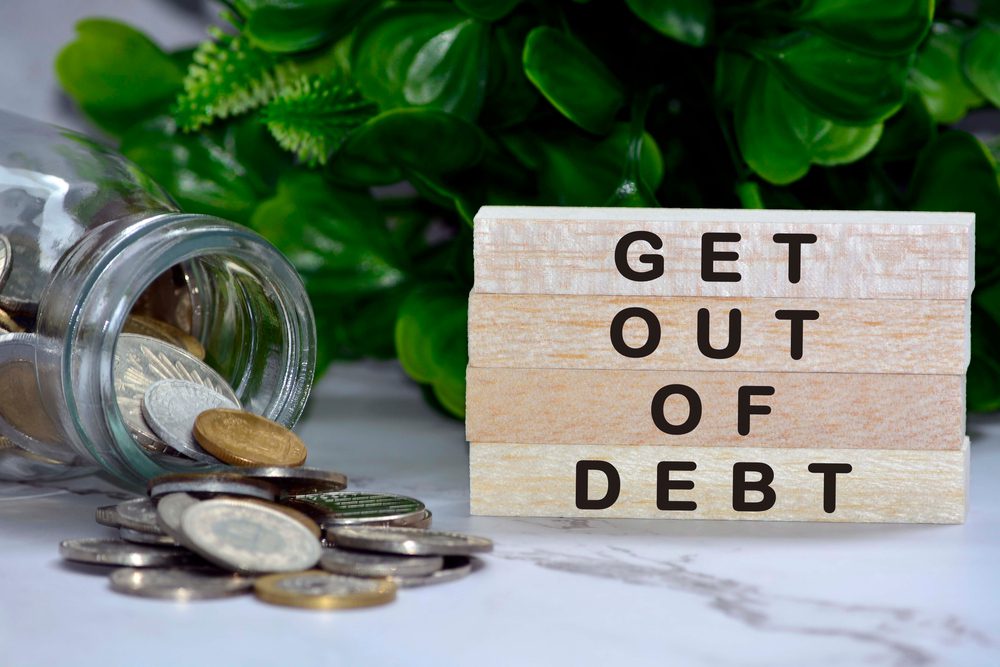Why Every Home Needs an Emergency Fund
We live in a world where we can’t afford not to have a plan B. We live in a world of anxiety and chaos, where every time you turn on the news or scroll through your phone, you’re hit with countless heartbreaking stories about rising prices, natural disasters, or sudden emergencies. It’s no wonder so many people are wondering what might go wrong next. We have begun to get used to chaos and an uncertain future.
In this unpredictable world, having an emergency fund could save your life. It’s no longer considered a smart financial move but a way to bring ourselves peace. Money stress is something all of us have felt at some point, and even though we tend to think that we’ll figure it all out… in reality, financial emergencies don’t really give us time to react. So, the best option is to be prepared.
Experts say that the money set aside should cover three to six months’ worth of expenses. Many events can immediately wreck your finances if you are not prepared, such as car repairs, household repairs, or urgent medical needs. Yet despite how important emergency funds are, many Americans live without them.
You might be stable today, so skipping an emergency fund might not seem like a big deal, but in reality, the risks are bigger than people realize. Read on and discover why securing your future is a must.

8 Risks You Can’t Ignore
1. Going into debt
If you don’t have money when you need it the most, you will be forced to borrow from friends, or turn to credit cards, and personal loans. However, experts say that it’s best to avoid the use of credit cards, especially for everyday items, because debt can quickly accumulate.
Without an emergency fund, you will most likely find yourself trapped in a cycle where every new surprise adds to your debt, making it hard to recover. Unfortunately, over time, this can seriously affect your life because your monthly minimum payments will continue to rise, and your financial options will become limited.
2. Missed payments and late fees
When you don’t have enough money to cover your expenses, you’ll have to make choices about which bills to pay. If you don’t have an emergency fund, you might delay paying credit cards, utilities, or even rent, hoping to catch up later.
Remember that missed or late payments are no joke, and usually come with penalties. For example, just one or two missed payments can significantly drop your credit score, making it harder (and more expensive) to qualify for loans or rentals in the future.
Even though it requires a little bit of effort, an emergency fund feels like a breath of fresh air when times are tough. So, do your best now and benefit later.

3. Sacrifices
When you have financial constraints, your options become limited, and you need to sacrifice some things to keep your expenses under control. When you are financially struggling, spending money on your happiness or self-care becomes almost impossible. And, we all know how important it is to love ourselves. So, being forced to sacrifice the small reasons for happiness in your life and focus on serious problems might seriously affect your mental health in the long term.
Keep in mind that having an emergency fund will allow you to cover unplanned costs without having to limit your budget elsewhere.
4. Financial stress
Do you really want to go through all that stress just because you weren’t responsible enough to save? Financial stress can easily lead to serious problems, such as anxiety, sleepless nights, and constant worry. Having to think about how to cover the essential costs is not easy at all.
It can make you lose opportunities, because without savings, you may be forced to say no simply because you can’t cover upfront costs. Having an emergency fund puts you in a stronger position, because it doesn’t mean that you’ll easily face the bad ones, but you’ll also take advantage of good surprises.
Being financially stable is the key to freedom. It increases your flexibility, letting you make decisions from a place of strength and build the life you want.
5. Damaging relationships
When people don’t have enough money, they usually turn to friends or family for help. Even though some loved ones may be willing to lend a hand once or twice, repeated borrowing can strain relationships.
The family members will start to wonder what is going on with you, and your conversations will become a constant source of tension. Also, if you are in a romantic relationship, your partner might also be affected by your situation, making it hard to maintain a healthy and balanced connection. When money is a constant source of never-ending discussions, relying on others can easily break long-standing bonds.

6. Decreased care
Unfortunately, most of the time, the unplanned expenses are health-related. There’s always something to check up on. As we grow old, problems appear, and without an emergency fund becomes almost impossible to properly take care of ourselves.
Many Americans stop taking care of their medical needs, just because they don’t have enough money to cover all the expenses. Whether it’s skipping doctor’s appointments, putting off car maintenance, or ignoring household repairs, people tend to cut back on necessary care when money is tight.
A minor health issue can become a major medical emergency, and a simple car problem can turn into a costly breakdown. Without a financial backup, it’s normal for you to start prioritizing survival over well-being, slowly chipping away at the quality of life and health.
7. Long-term financial setback
When you don’t have an emergency fund, one unexpected event can force you to make desperate financial choices. You might max out credit cards, take out high-interest loans, or drain your retirement savings.
High-interest debt is not a solution; it will only make it harder to pay down balances and will most likely leave you stuck in a cycle of minimum payments. Draining your retirement funds can also seriously affect you in the long term, forcing you to work longer or sacrifice your quality of life later on.
The best idea is to have an emergency fund because it acts like a financial buffer, and it’s the only one that will help you handle surprises without pushing you off track. Without it, even one bad break can turn into years of stress and lost opportunities.
8. Emotional stress and burnout
When you don’t have an emergency fund, the pressure is huge. Every unexpected bill or sudden expense can feel overwhelming when you have no financial cushion to fall back on. Over time, this constant sense of worry builds into emotional stress. Yoy may find yourself losing sleep, becoming irritable with loved ones, or feeling a constant knot of anxiety in your stomach.
Without a break, this cycle of worry and exhaustion can slide into full-blown burnout. Oh, and don’t get us wrong! Burnout doesn’t mean feeling tired, it’s a state of physical, emotional, and mental exhaustion where you feel like you have nothing left to give.
People who are experiencing burnout often feel hopeless about the future, withdraw from friends, and lose interest in things they once enjoyed.
Before leaving, we have a book recommendation for you. If you want to change your relationship with money and build a budget that really works for you, Dave Ramsey might have all the answers you are looking for. As you already know, he is America’s favorite personal finance expert and is here to provide practical and long-term help. Click here to see its reviews: The Total Money Makeover Updated and Expanded: A Proven Plan for Financial Peace
If you liked this article, here’s what to read next: Can You Live on Social Security Alone in 2025?












